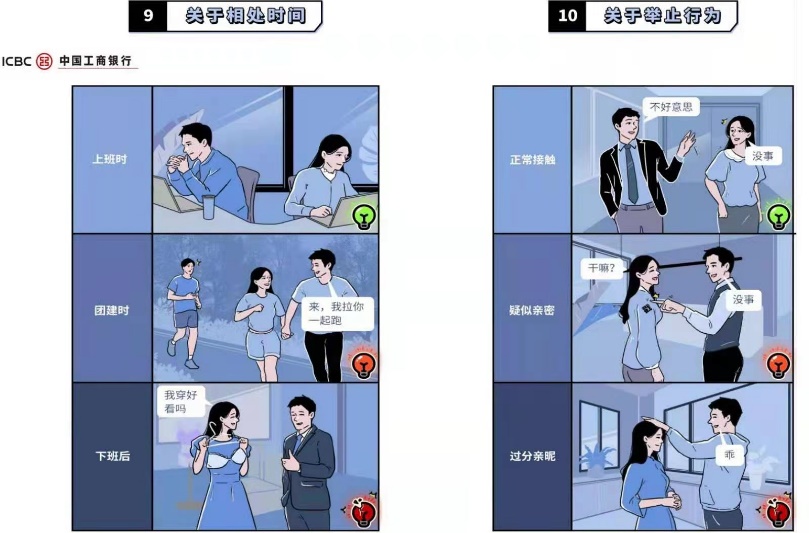China’s largest bank sends half a million employees a memo on workplace sexual misconduct
ICBC, one of China’s biggest and most important companies, has set a new corporate standard for the country by sending all of its employees a set of guidelines to avoid workplace misconduct.

In a rare move for a Chinese company, the Industrial and Commercial Bank of China (ICBC), China’s biggest commercial lender, has circulated an internal memo encouraging its employees to set and maintain boundaries when interacting with coworkers of the opposite gender.
The memo (in Chinese), which includes stipulations about sharing taxis with colleagues and going on dates in private, has drawn mixed reactions on Chinese social media, with some applauding ICBC’s commitments to curtail workplace sexual misconduct and others slamming the bank for encroaching too far into employees’ private lives.
In an email sent to staffers on Monday, ICBC stressed that employees’ behavior was “an essential component” of its corporate culture, and stated that female and male workers establishing a healthy distance between one another was beneficial to their own “professional career” and “family’s happiness.”
The memo also outlined 10 guidelines for employees on how to “interact with coworkers of the opposite sex,” with each being accompanied by an illustration that showed behavior that is given a “green light” or a “red light” to show whether it is appropriate.
Among other recommendations, the memo encourages ICBC staffers to:
- Avoid one-on-one interactions with coworkers of the opposite gender in enclosed spaces
- Be mindful of not crossing the line in daily communication
- Stay professional in virtual meetings
- Pay attention to the company’s dress code and make sure one’s clothes fit
- Limit gift exchanges as much as possible
When it comes to giving colleagues a ride home, if the driver is a man and a woman is on the receiving end of the favor, the memo advises the female employee not to sit in the front seat. Other scenarios labeled with a “red light” included a male worker petting a female worker’s head and a female worker asking a male worker about his thoughts on women’s underwear.


The letter says the guidelines are based on “profound lessons” drawn from “relevant cases” in the past, but gives no details. The ambiguity has inevitably spurred a flurry of speculation about the back story and objective behind the memo, with some wondering if there was a serious problem of sexual harassment and misconduct at ICBC.
The suggestions don’t seem to be particularly groundbreaking, nor do they have the power of company policy. But ICBC is huge and the guidelines could affect the personal and private lives of the roughly half a million people the bank employs. ICBC is also a brand that just about every Chinese person knows. So the leaked memo has been met with strong reactions on Chinese social media.
Many comments have praised ICBC: “These recommendations won’t fix everything, but at least ICBC is trying its best to protect women from sexual harassment in a workplace setting,” a Weibo user wrote (in Chinese). Echoing a similar sentiment, some internet users urged other companies to follow suit. “I absolutely love the idea and I wish it could be adopted nationwide,” another person commented (in Chinese).
While most of the responses to the news were overwhelmingly positive, there was a fair amount of criticism, too. Some detractors argued that personal and romantic relationships at work should be viewed as personal matters, and that ICBC had no right to impose its prudish views on employees. “Having dinner with a woman coworker outside of work doesn’t necessarily mean I’m interested in her romantically,” wrote (in Chinese) a man on Weibo.
Other critics were concerned about the memo’s lack of attentiveness to situations where men in powerful positions abused their power and faced no consequences for their behavior. “I can’t tell if the rules also apply to male executives at ICBC. It should exercise a special degree of oversight on them,” another person said (in Chinese).
Despite the rise of #MeToo in China since 2018, sexual misconduct in the workplace remains a pervasive problem, with surveys finding that nearly 40% of Chinese women have experienced some form of inappropriate behavior from their male colleagues and bosses in a professional setting.






